Ashley and Kyle Strong
The chances for a child younger than the age of 19 to get cancer are one in 330, according to the Ped-Onc Resource Center. But for Ashley and Kyle Junkunc, those so-called broad chances became quite the reality.
Kyle’s Diagnosis
In August 2014, Kyle first felt a lump on his throat while visiting a friend’s lake house in Wisconsin. He first knew something was wrong when he started to cough up some blood. When he went to the doctor to get it checked out, the doctors found a tonsil crypt and gave him an antibiotic that was thought to have cleared the problem.
The following month, Kyle complained of a sore throat and had swollen tonsils. He was prescribed an antibiotic as well as a steroid. When Kyle’s symptoms didn’t change with the medicines, his parents took him to an ear, nose and throat doctor, who specialized in his symptoms. While waiting for results from a biopsy they took, “the worst part [was] waiting because you don’t know what you have for like a month because they have to do so many tests,” Kyle described.
On Oct. 6, 2014, Kyle, 13 at the time, was diagnosed with Non-Hodgkin’s Lymphoma. His mother, Dawn Junkunc, in a phone interview, expressed how startled she was when she first found out the news: “It was just shock, it was out of body. It’s hard to explain that one. Cause it was just that you’re in total shock. Then you just go through all of the motions. It’s like you’re a robot.”
Kyle then proceeded with treatment. On Oct. 13 of that year, Kyle had tonsil surgery and a biopsy, as well as bone marrow aspiration. They found two cancerous spots on his neck: one on his tonsil and one on his lymph node.
Four days later, the doctors determined that Kyle had a rare form of B-cell Non-Hodgkin’s Lymphoma. On that same day, he started chemotherapy. Kyle’s chemo was nine weeks long, once per week, which was all done as outpatient work at Lurie Children’s Hospital in Chicago, meaning that he wasn’t admitted into the hospital but still received treatment there. His treatment would vary week to week with its intensity.
“[It was] kinda weird [because] it was like I had an intense one and then a medium one and then like an easy one and then intense,” he said. He also had to take oral medicine along with his chemo injections.
Continuing the Fight Every Day
Throughout his journey, Kyle said there was an immense amount of support that he received from the whole community of Libertyville between St. Joseph Catholic School (where he attended), as well as his Ice Dogs hockey team.
A fellow student and friend of Kyle, Joey Elert, recounted over an email interview that “[Kyle] wouldn’t let us feel bad about [his cancer], and always seemed like his old self even during treatment.” Elert, as well as another friend of Kyle’s, Joey Massarelli, supported Kyle in a physical way by shaving their heads.
Kyle expressed that his hockey team was always there for him and that they even “started to play better, like at [the] benefit game [for Kyle], they just played unreal.” Shannon Schweiger, a mother of children involved in both hockey and poms, conveyed over an email interview that the motto that they focused on was, “Sometimes the life lessons the game provides are more important than the game itself.”
The End For Now
When Kyle received his last treatment, he didn’t really know that it was over at first. The nurse took out his IV in the middle of his last spinal tap, so he had to take some medicine that made him weaker and unable to remember that his treatment was officially over.
“[I] didn’t really know I was done; I was just kinda loopy. And so the next day I just saw like a ton of posters. And it said like, ‘Congrats’ and I saw a picture of me with the doctors, and I was like, ‘I don’t even remember this stuff,’” Kyle stated. On Dec. 18, 2014, it was announced that Kyle was cancer-free.
Beginning Again
Two years later, in April 2016, Kyle’s older sister, Ashley, also felt a lump on her neck. She was put on an oral antibiotic that also didn’t work. Ashley, 17 at the time, explained that she was paranoid that the lump was something bigger than a swollen lymph node that they had told her it was: “I feel like you know your body, and you just kind of know that something was wrong.”
On April 4 of last year, Ashley was admitted into Lurie Children’s Hospital for an IV antibiotic and tests. Two days later, Ashley had biopsy surgery.
On April 7, Ashley was diagnosed with the same type of cancer as Kyle: Non-Hodgkin’s Lymphoma. The doctors first thought that she had T-cell Non Hodgkin’s Lymphoma, but after tests that were sent to Maryland for further review, they determined that it was B-cell Non-Hodgkin’s Lymphoma.
The next day, Ashley started right into treatment with a surgery to remove her lymph node in her neck and a bone marrow aspiration. They found a chain of cancerous spots in her lymph nodes and two by her liver.
Differences Along the Way
Because of the location of her cancerous spots, Ashley was diagnosed with stage three cancer and proceeded with a more vigourous treatment plan. Unlike her brother, her treatment was mostly all inpatient, meaning that she had to be admitted to Lurie and ended up spending a total of 30 nights there.
Ashley would stay for five to seven days at a time, which was followed by two or three weeks home. While she was home during those two to three weeks, Ashley would have her blood work checked by a health care nurse and rest. She would also receive a spinal tap and two rounds of chemo treatment for every inpatient stay.
On April 25, Ashley had port surgery to place a port in her chest, which would administer the chemo.
Support During the Journey
One nurse who stood out to Ashley was Daryl, who always let her do what she wanted and made the experience “way more fun.” Following her port surgery, she recounted that most of the nurses wouldn’t let her shower in fear of infecting the wound. Ashley stated that “Daryl was super funny about it and was like, ‘I’m gonna let you shower.’”
Some people who helped Ashley through her journey also had previously helped Kyle. Massarelli included over an email interview that he would use Snapchat to connect with Ashley in an attempt to bring a smile to her face.
Watching Kyle go through the same experience just two years earlier was a motivator for Ashley. “I kinda had the insight of knowing that he did it, [so] I can do it too. I feel like when you’re diagnosed with something as scary as cancer, it’s not a matter of ‘Oh my god, I’m gonna die.’ It’s like, it’s up to me whether or not I’m going to sink or swim. You just do it, you don’t think twice about it,” Ashley stated.
Before she was deemed cancer-free, Ashley and her mother traveled to Michigan for a college visit right after her last scans and bloodwork. On her way there, on Aug. 1, they got the call that she was cancer-free.
Kyle and Ashley’s older brother, Andrew, was away at college when Kyle was diagnosed. Mrs. Junkunc expressed that it “was really hard on [Andrew] feeling like he wanted to help, and he couldn’t.” For Ashley’s diagnosis, and most of her treatment, Andrew was home for summer break and could be there to help their whole family, especially Ashley.
After the whole experience of having two children go through extensive treatments and beating cancer, Mrs. Junkunc was elated: “It was like, it didn’t matter — any worries, stress or anything, does not compare.”
Some ways that Ashley and Kyle were able to remain positive and happy throughout these times were through the support of their family and friends. Amy Dykstra, a friend of Ashley, said over an email interview that, “It was hard for me to fathom Ash’s diagnosis after watching Kyle’s cancer journey. Every one of her family members were so unbelievably strong during these times, especially her parents.” Mrs. Junkunc included how she thought that she “didn’t have a choice but to stay positive.”
One outlet Mrs. Junkunc described that “saved her” was caringbridge.org, a blog that a friend of hers set up after Kyle’s diagnosis, which she used throughout both of Ashley and Kyle’s journeys. Mrs. Junkunc expressed the overwhelming feeling of people who “have a good heart so I’m not trying to be negative, but the phone doesn’t stop ringing, the emails don’t stop, the texts don’t stop.”
Moving Forward
Coming out of these experiences gave the Junkunc family a shift in their perspective. Going through cancer first-hand, Ashley and Kyle have a new appreciation for their lives. Kyle took from his encounter with cancer that you have to “just fight your battles so you can live the good moments.”Ashley said that her outlook on life has really changed and made her “realize that life is just too short and it can really happen to anybody.”
Watching her children both undergo extensive treatments, Mrs. Junkunc expressed that “after going through not one but two kids with cancer, it really makes you realize what’s important and what’s not.”



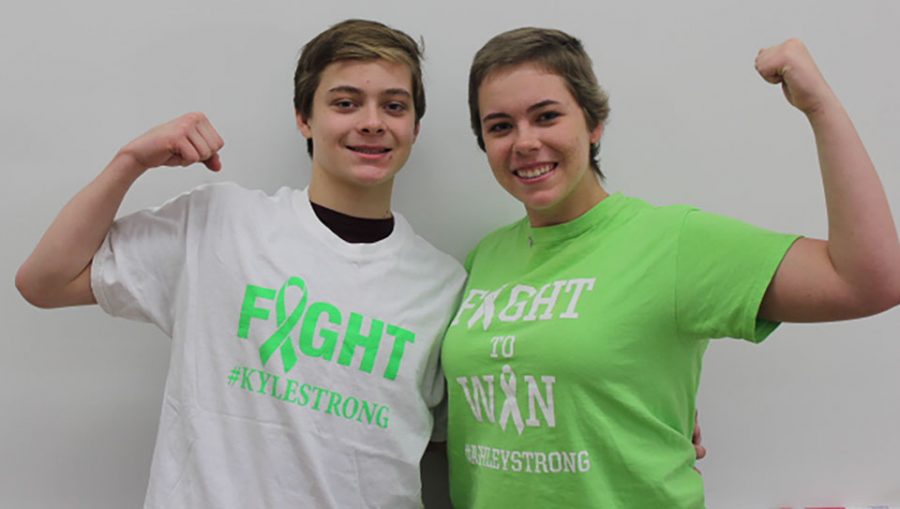
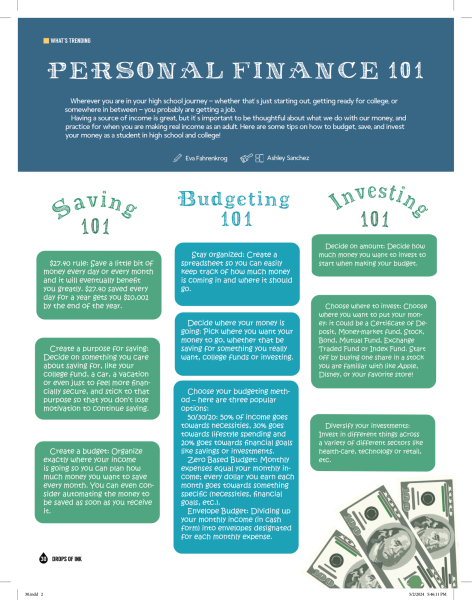
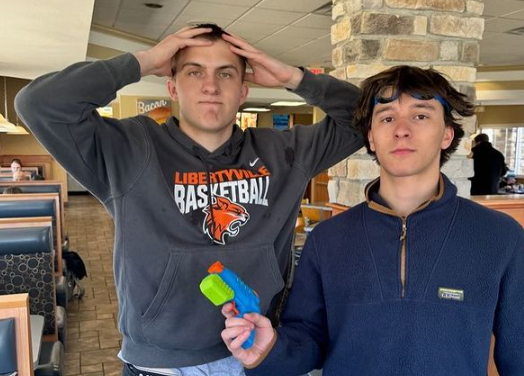

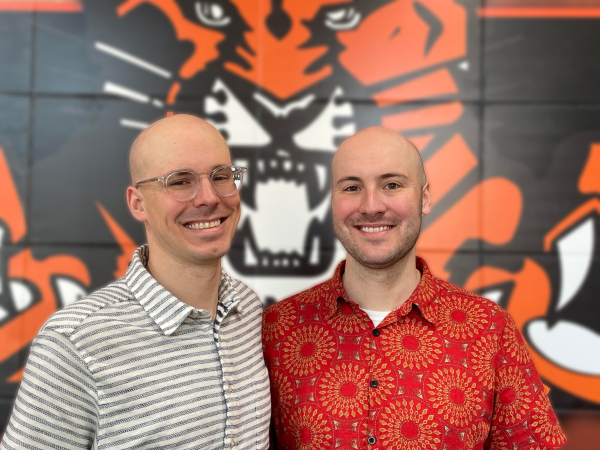
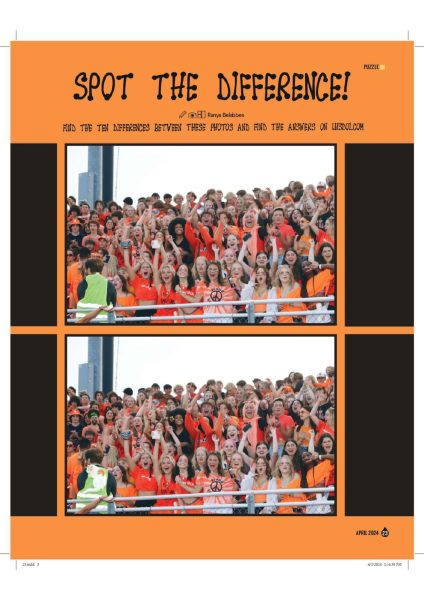
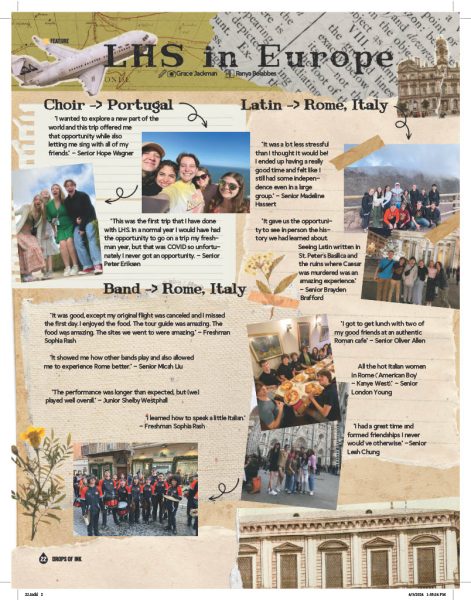


George Burnetti • Feb 22, 2017 at 11:34 am
A heartwarming description of two gallant tenacious fights by Kyle and Ashley to successfully overcome cancer. Much can be learned from their display of courage and from the support they received. A very good article guiding one through their journies and never allowing you to lose interest.